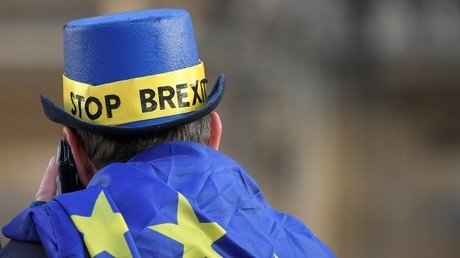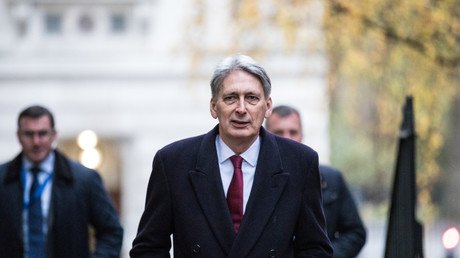Russia spent less than a dollar on Facebook ads to ‘influence’ Brexit referendum

If Theresa May is certain Russia is ‘meddling’ in British democracy she obviously knows some seriously cheap advertisers. It just emerged Russia spent 73p ($0.97) on ads to influence the Brexit referendum. How much influence can you buy for 73p?
Well, for a start, probably not a lot because the Facebook ads were about migration and the wider European context – and not Brexit. And then there’s the fact less than £1 was spent.
Facebook has revealed the figures after the Electoral Commission dug into Russia’s alleged “meddling.” In total, three adverts from the Kremlin-backed Internet Research Agency were seen just 200 times during the entire two month campaign period.
Two hundred. That does not even mean 200 people – just 200 clicks. There were more than 30 million voters. So potentially 0.0006 percent of the electorate saw them, to be exact.
On the other side of the pond, Russia spent $100,000 on Facebook adverts in the two years around the US election.
Those Brits who are super keen to jump on the Russia-bashing bandwagon should be suitably red faced.
“We strongly support the Commission’s efforts to regulate and enforce political campaign finance rules in the United Kingdom, and we take the Commission’s request very seriously,” Facebook said in a letter to the Commission.
“Further to your request, we have examined whether any of the identified Internet Research Agency (IRA) pages or account profiles funded advertisements to audiences in the United Kingdom during the regulated period for the EU Referendum.
“We have determined that these accounts associated with the IRA spent a small amount of money ($0.97) on advertisements that delivered to UK audiences during that time.
“This amount resulted in three advertisements (each of which were also targeted to US audiences and concerned immigration, not the EU referendum) delivering approximately 200 impressions to UK viewers over four days in May 2016.”
That’s right. The adverts were only seen on four days.
Desperate to find some shred of evidence, the Commission has also demanded evidence from Twitter and Google. A separate investigation has been launched by the House of Commons Digital, Culture Media and Sport Committee.
Simultaneously, a Russian cyber-operations expert called Ben Nimmo has rung the Russophobes at the Guardian to reveal all about Russian hacking and manipulating. He claims the Scottish referendum was influenced by the Russians. The Guardian ran a whole article on it. The only problem is, he has not actually got any evidence.
Why let that stop you running a story on it?
“He stressed he did not have proof the disinformation campaign was orchestrated by the Kremlin,” a line from the article read.
Researchers at Edinburgh University also gave the results of their examination of Twitter. They found 2,752 accounts linked to Russia.
Almost 3,000 of 974 million. Yet this drop in the ocean is proof of a huge impact?
So there you have it, the “proof” of Russian meddling: 73p, a few Facebook posts and a handful of Tweets. We can now empirically blame Russia when elections and referendums don’t go our way.
















